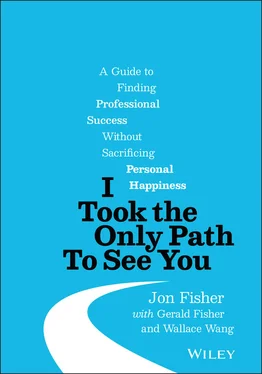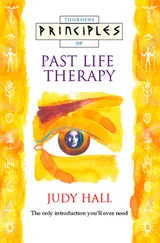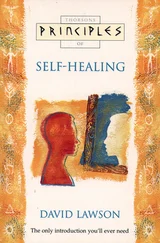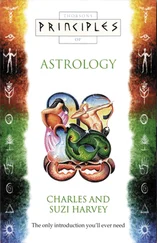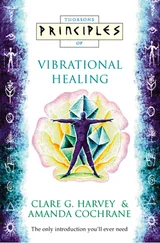To get into physical shape, you must follow a regular schedule. Likewise, to find happiness in your life, you must also follow a schedule. If you miss a workout day, you'll feel the difference in your body. If you miss a day without following your passion or being with someone you care about, you'll definitely feel the difference in your emotional state.
Every day, take action pursuing your passion. That action can be as short or as long as you like, but the more time you can spend doing what you love, the happier you'll be.
Use a piece of paper or a scheduling program to block out all necessary activities such as sleeping or going to work or school. Now with the free time remaining, schedule time for yourself.
Time, not money, is the most precious commodity in life. Everyone starts with the same 24 hours every day so spend those 24 hours wisely to follow your passion or share your life with your loved ones.
This is why money, fame, and power really can never make you happy. Once you pursue your dreams and strengthen your relationships with the people closest to you, that's when life becomes most satisfying.
So set aside time every day to follow your passion and be with the people you care about the most. When every day feels special, that's where the true riches in life will be found.
HOW TO KILL HAPPINESS (AND HOW TO GET IT)
At every moment, you can do something to improve your future. At the same time, you can also do something to hurt your future. By knowing common mistakes people make that can ruin their chances for happiness, you can make sure you don't repeat those same errors in your own life. Remember, the definition of insanity is doing the same thing over and over again and expecting a different result. Here are four myths that threaten future happiness:
1 You can never find your passion. If you don't know what you want out of life, you're never going to get it. Without passion, life loses much of its purpose and meaning. Not knowing why you're here can be the most depressing and empty feeling in the world.
2 You can only find happiness by being selfish. That makes it far too easy to ignore or even hurt those closest to you. If you're willing to hurt your loved ones in a maniacal pursuit for your own happiness, you'll more than likely hurt others as well. If you ever do reach the goal you're seeking, victory will seem hollow when you have no one around to share your accomplishment. All the gold in the world means nothing to someone stranded on a desert island.
3 Money will make you happy. When you pursue money at all costs, it's too easy to do something illegal, unethical, or immoral. Right now as you're reading this book, someone in the world is making money trafficking women and children and getting rich off their suffering. Are you willing to do that just for money?
4 You can only be happy by reaching a certain goal. When you focus solely on reaching a goal, you may not enjoy the activity necessary to achieve that particular goal. If you don't enjoy the necessary tasks and lifestyle changes you need to make to reach that goal, chances are good you'll never reach that goal and you'll actually be miserable in the process.
Even worse, if you're focused on reaching a goal and you don't care about the work needed to reach that goal, you'll be tempted to do whatever it takes to reach that goal. That can mean losing touch with those you care about while hurting acquaintances you meet along the way. Even if you do manage to reach your goal, it can only bring temporary happiness at best, like buying a new car. Do you really want to spend years of your life, engaged in an activity you don't enjoy, just to reach a goal that will fail to make you happy anyway?
If you don't find your passion, you'll just drift through life. Picture hopping in a boat and letting it drift into the Atlantic Ocean. There's a slight chance you might drift toward something wonderful, but there's a much greater chance you'll just drift aimlessly until you die.
If you think money, objects, or goals will make you happy, you'll risk wasting your time chasing an illusion that you might finally reach, only to find that you still aren't happy. Then you'll be right back where you started from.
So here's what you should learn before doing anything else. You don't find happiness, you create it.
You create happiness in two ways. First, by actively pursuing whatever you're passionate about. Second, by spending time with the people you care about the most. You can only create happiness through the action of doing what you love or sharing positive moments with your loved ones where you can help each other, learn from one another, or simply enjoy each other's company.
You find happiness in the active process of doing what you love or being around people who you love. Do this every day and you'll soon have a happy day, a happy week, a happy month, a happy year, and eventually a happy life.
Make a vow to yourself that you'll pursue your passion (or find it if you don't already know it) and that you'll set aside time every day to be with the ones you love.
That's the secret to happiness. Any questions?
Takeaway: Happiness is not something you can possess or reach. Happiness occurs through action by doing what you love or by spending time with people you care about. The key to happiness is finding what you're passionate about because it's something you'd be willing to do for free simply because you enjoy doing it.
By Gerald Fisher
Professor Arthur Schalow was the co-inventor of the laser, which would be something special to put on any resume. The question of legacy has always been very interesting to me. If somebody asked you, “What do you think you will be remembered for?” what would you say? That's a pretty tough question which is why people get very discouraged thinking about that.
Just thinking about this question forces you to think about your life. What have you done that will be memorable? Why will it be memorable? Think of your friends and ask how they may have made their mark in the world that will live on long after they're gone.
Ask Arthur Schalow what he thinks would live on after he's gone and he might say, “Charlie and I invented the laser.”
One experience that stands out in my mind was when Art and I were both on the Admissions Committee and somebody made a wisecrack, saying that it looks like everybody we're admitting was born between November and February. Of course I replied in my characteristic manner, “That's because people born between November and February are smarter and more gifted.” Everybody laughed, that relieved some of the tension, and we went back to work.
At the very next meeting, Art came in with a graph. He had looked up all the Nobel Prize winners since the first Nobel Prize winner in physics, Roentgen, who discovered X-rays in 1901. His graph covered over 100 years of Nobel Prizes with an average of 2.5 per year, so there were in excess of 250 Nobel Prize winners. He had looked up every birthday and plotted the number of Nobel Prize winner birthdays versus month, and found there was no correlation whatsoever. The graph was a horizontal line at best, but the fact that he had even created the graph and researched the facts tells you something about how he thought.
Although Art could certainly have rested on his laurels as the co-inventor of the laser, there was much more to him than that. My daughter attended a school that sent over a young kid to see me who was very smart and needed help building a project. When I asked him what he wanted to do, he told me, “I want to build a laser.”
I thought that was a great project so I decided to sign on. However, since lasers weren't my field of specialty, we eventually got bogged down a bit. It wasn't a matter of pride for me whether I helped this student build a successful working laser or not. I just wanted to help get this laser working correctly, so I went to see Art.
Читать дальше
